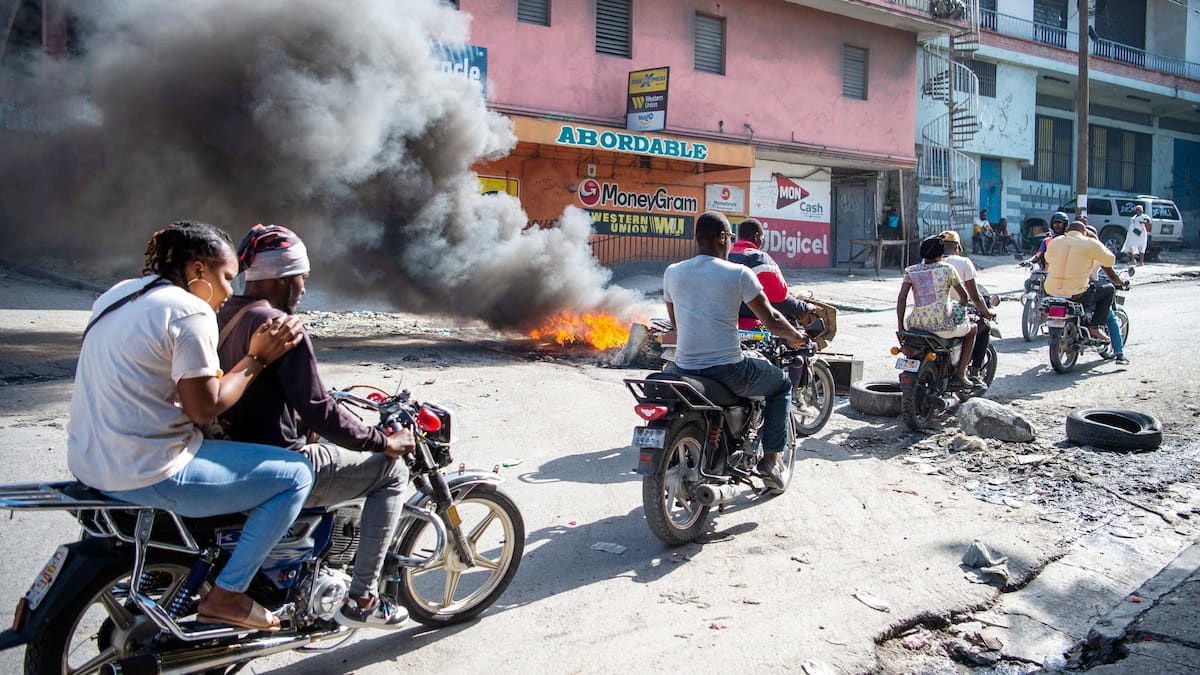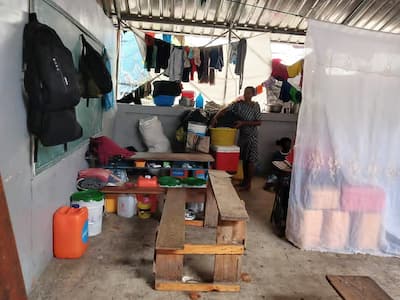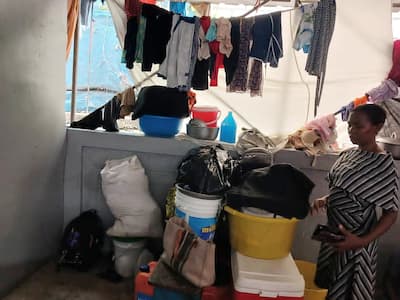
A Quebec humanitarian worker on her third mission in Haiti notes how the situation has worsened over the past 25 years in a country where armed gangs now rule as kings and masters, terrorizing the local population.
“There is an obvious decline. Almost all neighborhoods are controlled by gangs. You have to pay to travel. Three weeks ago, a whole bus was hijacked,” Gabby Breton testifies.
The humanitarian and partnerships director at the charity Save the Children International saw the situation worsen during his stints in 1997, 2015 to 2017 and 2024.
He arrived on the island of Hispaniola in January, where he moves between Les Cayes, Cap-Haïtien and the capital, Port-au-Prince, where he has been established since May and armed groups have control over 80% of the territory.
“It was good after the 2010 earthquake, at least we could move around without fear,” he says.
Crowds in schools
She is saddened to see the streets deserted by people taking shelter in their homes or fleeing the country with loot. Only two out of five hospitals in the capital are functional.
Once gangs take control of a neighborhood, people seek refuge in churches and schools, the only places they feel safe.
“It’s terrible. They are on the ground, they have almost no food, and I am not talking about sanitary conditions. Corridors and stairs are full,” laments the humanitarian worker.
Among other things, his mission is to help people leave places, relocate and start businesses by giving them a $120 start-up amount to meet their basic needs and other grants.
Meanwhile, the organization is launching an emergency education program for children in nearby homes.
A humanitarian worker sees human suffering every day, like this woman whose five sons left her to join gangs, unable to feed her five children.
“She doesn’t hear from him, she doesn’t know what he’s doing. She’s devastated if the community knows he’s gone to the gang. It’s a danger to herself and her life, and she’s helpless,” she said.
Call for unity
Mme Breton is the only Quebecer among the 109 Save the Children staff in Haiti, who are mainly Haitians. He wants to send a message of unity that “Haitians should not fall into oblivion, especially children.”
According to her, the Canadian government needs to be more involved than just supporting national power. “Security is very important, but we also need support for education, economic recovery program,” he asserts.






More Stories
More than 200 former Republican aides back Kamala Harris | US Election 2024
An investigation into the ill-treatment of the Lev Tahor sect in Guatemala
Brossard is suspected by the US of supporting Russia’s war effort